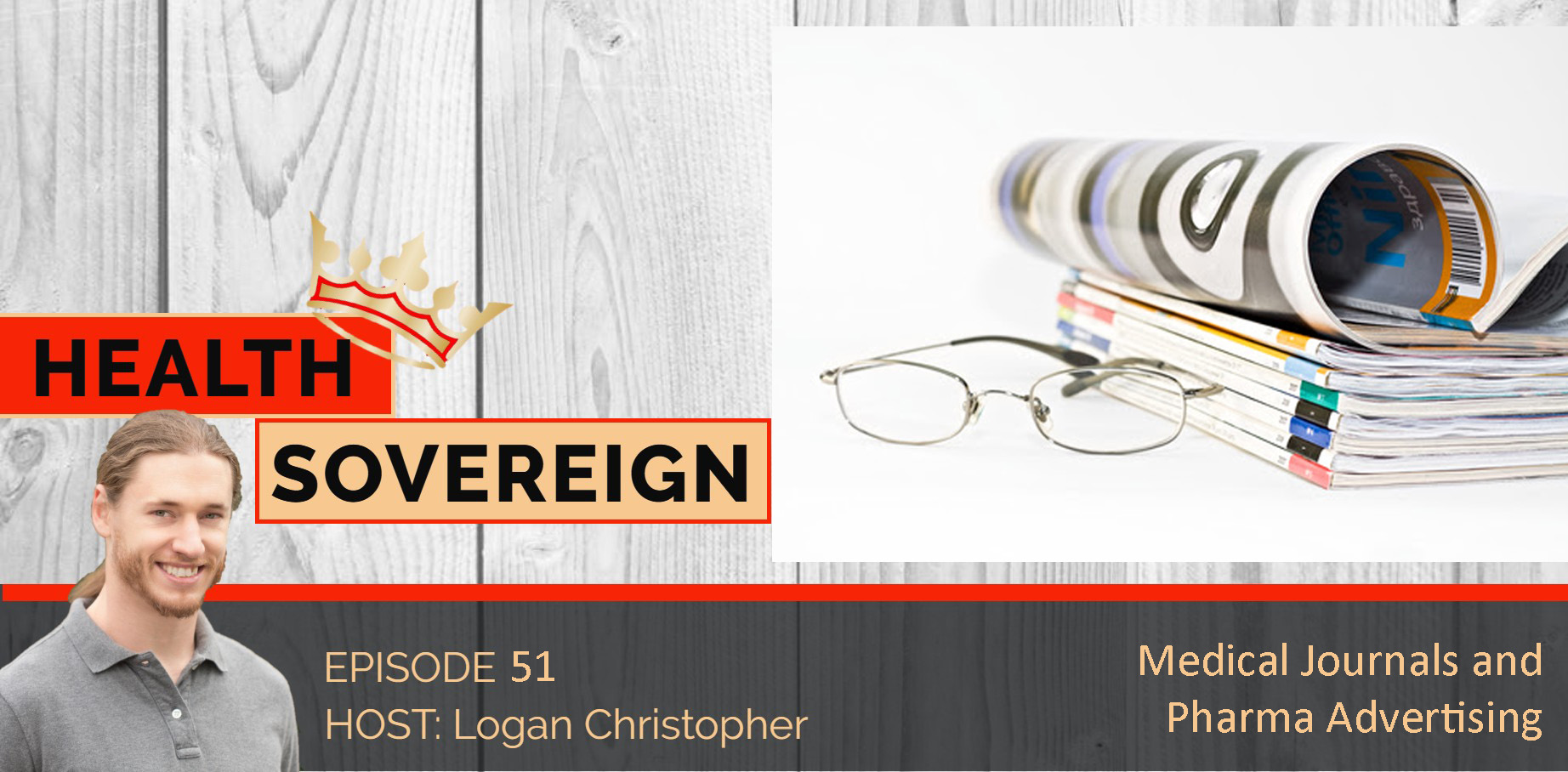Find out why the medical journals are basically bought and controlled by Big Pharma including:
- Twice as much advertising directed at doctors compared to the public
- Top editors of the journals themselves say the journals are bought
- How a full-court press is used by “gold-toothed pharma goons”
- The critical difference between advertising and editorial, yet how the former leads to the latter
- Science showing how advertising sways prescribing by doctors
- And much more
Did you enjoy the podcast? Let me know by leaving a short review and be sure to hit that subscribe button so you don’t miss any future episodes!
This episode also includes details about a new journalistic project I’m working on, why its important, and how you can support it. More details here.
Click the link below to see written articles and references.
As much as lay people are advertised to in the direct-to-consumer (DTC) advertising recently covered, its only a fraction of the marketing that is done. Most of it is aimed at doctors. They are really the pawns in the game. Because of their authoritarian position, if you can influence them, you can influence the masses.
In 2016, DTC advertising was $9.6 billion. Meanwhile, $20.3 billion was aimed at healthcare professions! A large portion of that is the journals, the topic of today.
Richard Smith, former editor of BMJ wrote, “Many medical journals have a substantial income from pharmaceutical companies from the purchasing of advertising and reprints and the sponsoring of supplements. Is this funding corrupting journals?”
Furthermore, he shares, “One of my first experiences of the relation between medical journals and pharmaceutical companies occurred in the early 1980s after the BMJ had published papers suggesting that a new non-steroidal anti-inflammatory drug, benoxaprofen, might have serious side effects. We were visited by three stern men from Eli Lilly, the makers of the drug. Tony Smith, the deputy editor, conducted the meeting and asked me to join him. The men, whom I remember (probably wrongly) as having gold teeth, threatened us with legal action, at which point Tony said: ‘In that case we'll see you in court.’ They backtracked hastily and asked simply to be able to publish a prompt response.”
Full court press using every tactic available to them. Richard shares the following important points:
● The journals are typical free for doctors
● The journals livelihood depends on income from pharmaceutical advertising
● The advertising is often misleading
● Editorial coverage is more valuable than the ads. Often the advertising income influences editorial coverage
● Scientific studies can be manipulated in many ways to get desired outcomes
● In addition to advertising, medical journals get income from supplements and reprints paid for by drug companies (i.e. publish this and we’ll promise to buy 10,000 issues)
And the drug advertisements have been shown to effect prescribing by doctors. Like the TV ads, so to does this form of advertising work.
Smith writes, “In one sense, all journals are bought—or at least cleverly used—by the pharmaceutical industry. The industry dominates health care, and most doctors have been wined and dined by it. It's not surprising, therefore, that medical journals too should be heavily influenced by industry.”
And once again, the influence on the journals themselves may be the more important part of paying the bills.
In an article titled “Advertising in Medical Journals: Should Current Practices Change?” Fugh-Berman, et al. write, “Clinicians rely on medical journals for scholarly articles and the latest information on drugs and devices. Advertisements in these journals are unreliable sources of information, since they “educate” physicians to prescribe the newest, most expensive drugs (which may not be any superior to existing, less expensive alternatives). The scholarly nature of journals confers credibility on both articles and advertisements within their pages. By exclusively featuring advertisements for drugs and devices, medical journals implicitly endorse corporate promotion of the most profitable products. Advertisements and other financial arrangements with pharmaceutical companies compromise the objectivity of journals.”
The problem of journals is well-described. Many top editors of the top journals themselves such as Richard Smith, Marcia Angell (see #27), and others have stated as such.
Why are we still trusting anything in them?
References:
https://www.mdedge.com/hematology-oncology/article/192294/practice-management/spending-medical-marketing-increased-122
https://www.ncbi.nlm.nih.gov/pmc/articles/PMC1126057/
https://news.cornell.edu/stories/2020/02/after-free-lunch-drug-firms-doctors-increase-prescriptions
https://www.ncbi.nlm.nih.gov/pmc/articles/PMC1450016/

[…] has been destroyed by the FDA never to see the light of publication in a medical journal (See Medical Journals and Pharma Advertising in Episode 51 of the Health Sovereign Podcast.)? In a free market, this man would have continued his business and spread the medical knowledge he […]